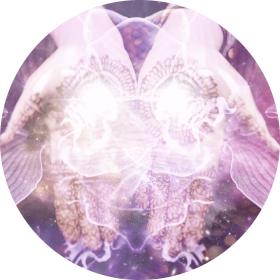Wormwood

Uncover Hidden Herbs meanings
Wormwood will grow naturally in various places, it does well in all habitats including field, at the end of paths and roads, and arid, uncultivated land.
The plant can also be grown in dry soils. However, in this case, one will have to plant it in open lands where the soil is middle weight. The plant actively uses the nitrogen in the soil and thus will do well in soils with a lot of nitrogen.
There are several ways in which it can be propagated, but the common ones are seeds taken from nursery beds and cutting taken from mother plant between march and October. It grows to be about a meter in length and not very high, which will give it a bush like appearance.
Wormwood has a nasty odor which makes it an ideal spray against pests. Another advantage is that it will be much cheaper and less toxic than the artificial weed killers.
Many farmers use it when planting to reduce weeds as the seedlings emerge from the ground, this results form the factor that its roots will produce substance that will impair growth of plants near the seedlings. It will keep off larvae of the pests if planted on the edge of cultivated fields.
It has various uses in the drinks as it is used to flavor some wines and spirits. During the 18th Century, the Britons used it as an alternative for hops when making beers. It has several uses in several other countries such as Korea and the United States.
Wormwood will help to
- Prevents accident's.
- Helps psychic vision.
- Offering to spirit.
- Eliminate bacterial ailments.
- Cure stomach diseases.
- Sterilization.
- Improve blood flow.
- To increase psychic visions.
Medical uses
Traditionally, Wormwood was used to cure a person of worms. This is how the name of the plant came about. It is known to cure stomach problems such as indigestions, gas, and heartburn. However, the plant when used medicinally also can induce psychedelic states. Recent studies have shown that Wormwood can be beneficial to those suffering from Crohn's Disease.
Typically, only the leaves and flowers of wormwood are used as medicine. They are gathered when ripe enough and then dried in either of artificial and natural methods. It has Silica, anasinthine, absintine, tannic, succinic acid, thujone and malic acid. All of the elements are essential for cure of various diseases, especially those caused by microbial. However, note that a pure oil extracted from boll wood is vey harmful if taken in large doses. Other uses of the oil are improvement of blood circulation and treatment of leishmaniasis.
IMPORTANT NOTE: Wormwood contains a chemical called Thujone which is poisonous. It is toxic to humans in large doses. Long term use of wormwood is also considered to be habit forming. Using too much can have adverse affects and cause siezures.
Magical uses
As a plant, the wormwood is normally found in Europe. It can be used for protection against accidents. It has long been used to hang from the car mirror to prevent accidents along with the evil eye charm. In terms of spiritual uses this herb is normally placed on a plate at the altar and added to psychic vision incense. It can be ingested, as was common in ancient Europe. They would use it as an alternative to mead made from honey. The product of the Wormwood was called absinthe and would induce visions in the imbiber. It is also used to banishing spells. When mixed with mugwart, wormwood is considered a potent herb for bringing about spirits and is often used by mediums when contacting the deceased.
By Florance Saul
Aug 29, 2012







